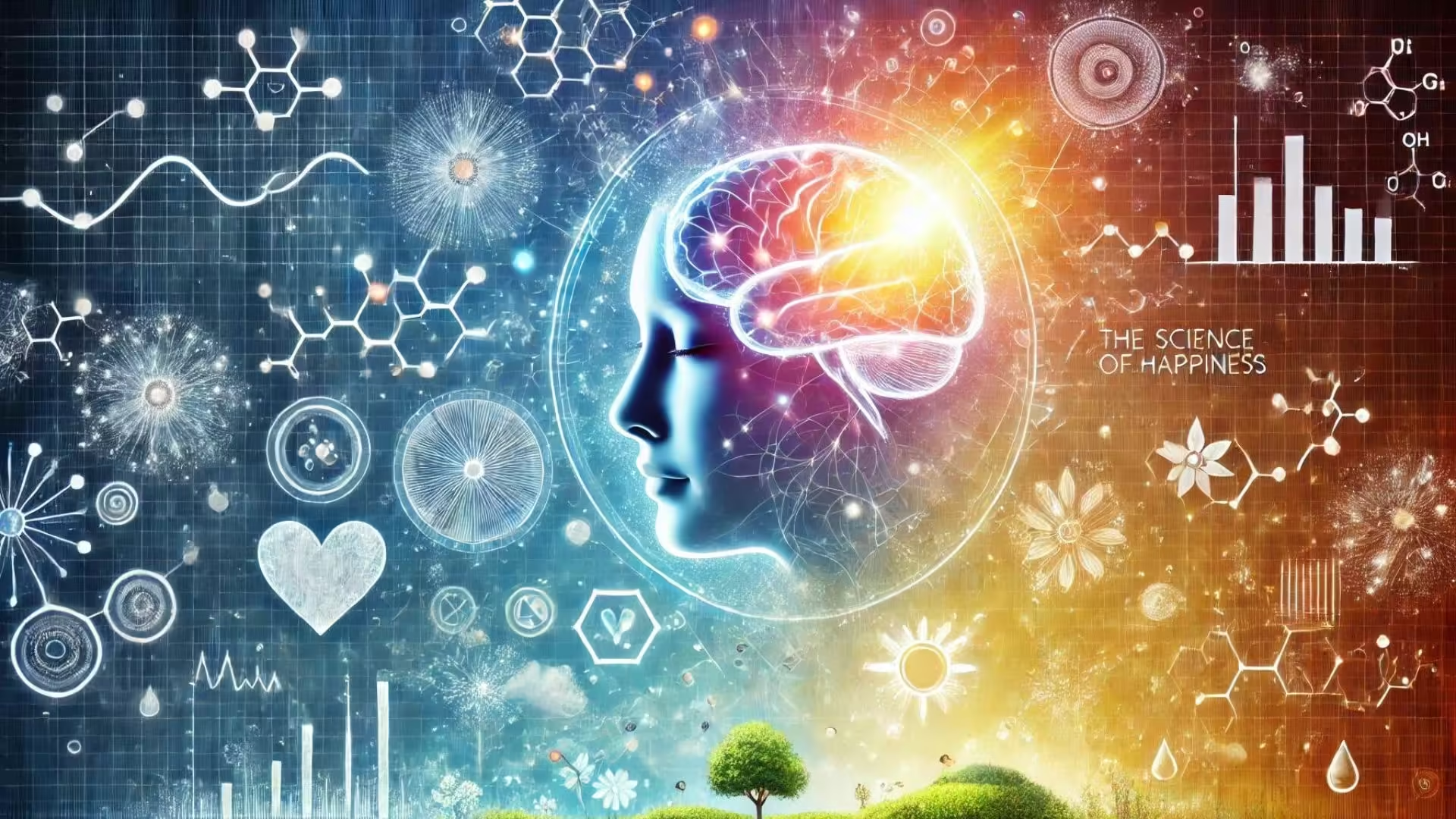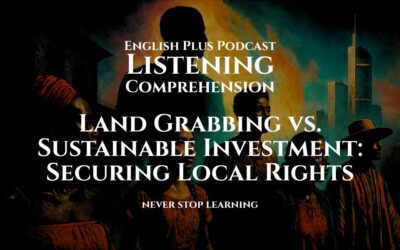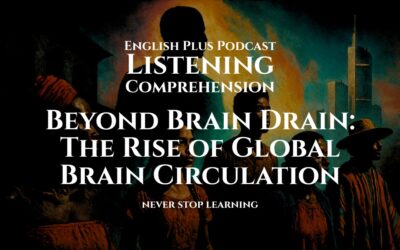Listen | The Science of Happiness
Transcript is here. Please read it only after you listen.
Let’s dive into a topic that’s both fascinating and essential to your everyday life: the science of happiness. Now, you might be thinking, “Is happiness really something that can be scientifically studied?” The short answer is yes! Researchers have been studying happiness for decades, and what they’ve found might surprise you. So, let’s walk through it together.
First, let’s talk about what happiness actually is. It’s not just about feeling good in the moment—happiness is more complex than that. It’s what psychologists call “subjective well-being.” Essentially, it’s how satisfied you feel with your life, combined with how frequently you experience positive emotions versus negative ones. So, yes, happiness is more than just fleeting pleasure—it’s a deeper sense of contentment.
Now, what really makes people happy? There’s a lot of debate, but studies have pinpointed a few key factors. One of the biggest myths is that money can buy happiness. You’ve probably heard that money doesn’t make you happy, but that’s only partly true. There’s actually a threshold where money does increase happiness—up to a point. Research suggests that once your basic needs are met (food, shelter, security), more money doesn’t necessarily make you much happier. Beyond that, it’s all about how you spend that money. Buying experiences—like traveling or learning something new—tends to bring more happiness than material goods.
But money isn’t everything. You know what really stands out? Relationships. Time and time again, studies show that strong, positive relationships are one of the biggest predictors of happiness. It’s not just about having people around you—it’s about the quality of those relationships. Friends, family, even colleagues—if you have deep, meaningful connections, you’re more likely to feel fulfilled.
Let’s not forget about your mindset, though. This is something you can control on a day-to-day basis. It’s fascinating how much happiness can come from simply choosing to be positive. Think about gratitude. When you practice gratitude—when you actively think about the things you’re thankful for—it shifts your focus from what you lack to what you have. This is one of the simplest and most effective ways to boost your happiness. And what’s amazing is that it’s backed by science—gratitude can actually change your brain!
Exercise is another big one. It might sound cliché, but there’s a reason you always hear about the link between physical activity and mental health. When you exercise, your brain releases endorphins, which are natural mood lifters. You don’t need to run a marathon to feel the effects, either. Even a short walk can do wonders for your mood.
And then there’s flow. You know that feeling when you’re so deeply immersed in something that time seems to disappear? That’s called flow, and it’s a key component of happiness. Whether it’s playing a musical instrument, painting, coding, or even playing a video game, when you’re in flow, you’re completely focused and often feel a deep sense of satisfaction.
Finally, I want to mention something a lot of people overlook: kindness. There’s a whole field of research showing that helping others can significantly increase your own happiness. It’s called the “helper’s high.” Small acts of kindness—like holding a door open or buying someone a coffee—can lift your mood in ways that last longer than you’d expect.
So, to sum it all up: happiness isn’t something that just happens to you. It’s something you can actively cultivate by nurturing relationships, shifting your mindset, taking care of your body, immersing yourself in activities you love, and doing good for others. The science of happiness shows us that with a little intention, we can all live happier, more fulfilling lives.
Comprehension Quiz
Expand Your Vocabulary
- Subjective Well-Being
This term refers to a person’s evaluation of their own life, including emotional reactions and cognitive judgments of life satisfaction. In everyday English, you might hear people discussing subjective well-being when talking about how happy or content they feel with their lives. For example, “My subjective well-being improved after I started practicing gratitude daily.” - Fleeting Pleasure
This expression means a temporary feeling of happiness or satisfaction. It’s often used in contrast to long-term contentment. You might say, “Buying new clothes gives me fleeting pleasure, but spending time with friends brings lasting happiness.” - Threshold
A threshold is a point at which something begins or changes. In the article, it refers to the limit where money no longer significantly increases happiness. In everyday English, you might hear, “Once I reached a certain threshold of success, I started focusing more on work-life balance.” - Meaningful Connections
This phrase refers to relationships that are deep, fulfilling, and emotionally significant. It’s commonly used to talk about personal relationships in daily life, such as “Having meaningful connections with friends makes me feel more grounded and happy.” - Gratitude
Gratitude means being thankful and appreciative. In the context of happiness, it refers to focusing on what you have rather than what you lack. In daily conversations, you might say, “Practicing gratitude helps me appreciate the small joys in life.” - Mood Lifters
These are things that improve your mood, making you feel happier or more positive. Exercise, music, or spending time outdoors can all be mood lifters. For example, “Listening to my favorite songs is always a mood lifter when I’m feeling down.” - Endorphins
Endorphins are chemicals in the brain that act as natural painkillers and mood boosters. Exercise releases these chemicals. You might hear someone say, “I felt great after my workout—those endorphins really kicked in!” - Flow
Flow is a state of being deeply involved in an activity where time seems to fade away. It’s often mentioned in the context of hobbies or work tasks that require full concentration. For example, “I get into a state of flow when I’m painting, and hours pass without me noticing.” - Helper’s High
This is the feeling of happiness or satisfaction that comes from helping others. It’s a term often used in psychology to describe the positive effects of kindness. In everyday use, you might say, “Volunteering at the shelter gave me such a helper’s high—I felt really good after helping out.” - Cultivate
To cultivate means to actively work on improving or developing something over time. In the context of happiness, it means actively working to create happiness in your life. You might hear, “I’m trying to cultivate a positive mindset by focusing on gratitude and mindfulness.”
Vocabulary Quiz
Let’s Talk
- What do you think is more important for happiness—having a lot of money or having meaningful relationships? Why?
- How do you practice gratitude in your daily life, and do you think it has a positive effect on your mood?
- Have you ever experienced the “helper’s high” after doing something kind for someone else? How did it make you feel?
- Do you agree that focusing on experiences rather than material possessions can bring more happiness? Why or why not?
- How do you enter a state of flow in your daily life? What activities make you lose track of time?
- In what ways do you think happiness is something you can control versus something that happens to you?
- What small changes could you make in your routine to cultivate more happiness, like practicing mindfulness or exercising more regularly?
- How important do you think physical activity is for mental health, based on your own experiences?
- Do you think kindness and helping others is an overlooked aspect of happiness? Why might it be important to practice more often?
- In what ways could focusing more on relationships and gratitude change the way you view your life overall?
Take a moment to reflect on these questions or discuss them with your friends or family—it might give you a new perspective on the pursuit of happiness!










0 Comments